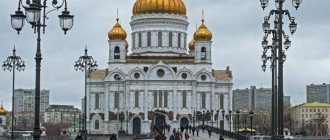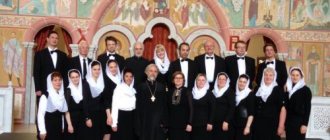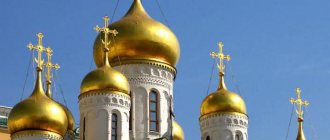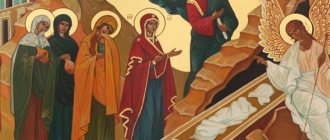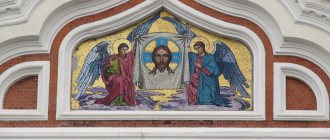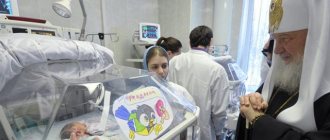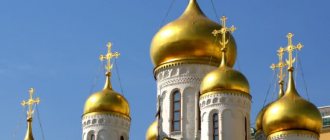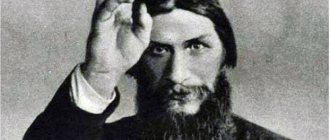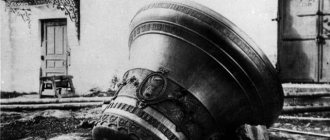Definition of an autocephalous church
The Autocephalous Church is a completely independent organization that does not depend on the Ecumenical Council and can independently make decisions regarding its order and work. In the Ecumenical Council, by the way, the leadership consists of representatives of all autocephalous churches.
If we consider the question of how an autocephalous church differs, we can say that each is headed by a bishop who has the rank of metropolitan, patriarch or archbishop. His choice is made within the organization itself. Another difference is that the autocephalous church makes peace without the help of others.
The emergence of Russian autocephaly
The year when the Russian autocephalous church was formed can be considered 1448. The split from the Church of Constantinople occurred for many reasons. One of the main ones was the too far distance between the two states, as well as their complete independence from each other. The Russian Church had a large number of bishops, even exceeding the number required by the canons for secession.
At the time the Russian Church acquired autocephalous status, two similar ones had already been disconnected. These are Serbian and Bulgarian. In Rus', too, this need was ripe, and the impetus was the following event. The last Greek metropolitan, Isidore, accepted the union together with the Roman Church. In addition, at the meeting to select a new metropolitan, the Russian bishop was once again not elected.
Of course, Isidore was deposed, but the entire clergy of Constantinople accepted the obligations of the Council of Florence. This led to the fact that in 1448 the Russian successor Jonah of Ryazan was elected metropolitan for the first time. This event is the beginning of the emergence of Russian autocephaly.
Of course, the Russian and Greek churches have not lost touch with each other. This was manifested in letters and regular visits to Moscow. Such a relationship was to the taste of both parties.
Other Orthodox autocephalous churches
In addition to the fact that there is a Russian Orthodox Autocephalous Church, there are also others that are considered recognized. There are only fifteen of them:
- Constantinople;
- Alexandria;
- Antioch;
- Georgian;
- Jerusalem;
- Serbian;
- Romanian;
- Cyprus;
- Bulgarian;
- Hellasic;
- Polish;
- Albanian;
- Church in America;
- In the Czech Republic and Slovakia.
Despite the fact that there are many churches, the most numerous is the Russian one. It has about hundreds of millions of parishioners. However, the oldest is considered to be that of Constantinople, since it was from it that all other autocephalies, and later autocephalies, originated (split off). This patriarchate is also called “ecumenical”, since in ancient times this was the name of the Roman Empire, which at that time included Constantinople.
Current state of the issue
Today, the understanding of autocephaly remains highly politicized and includes many aspects not related to canon law and ecclesiology. Autocephaly continues to be widely regarded in secularized circles as a manifestation and obligatory attribute of national independence and self-sufficiency. Such a misunderstanding continues to give rise to disorder and schisms, of which on the territory of the Russian Church the most significant is the so-called. "Kyiv Patriarchate".
The issue of the right to grant autocephaly continues to remain acute and complex. The most intense in this regard is the confrontation surrounding the Orthodox Church in America. Soon after the Russian Church granted it autocephaly in 1970, all other local Churches split - only the Georgian, Bulgarian, Czechoslovak and Polish Churches recognized the new autocephaly.
The understanding of the essence of the institution of autocephaly, its canonical content and the significance of this institution for the unity of the Orthodox Church basically coincides among all local Churches. The main differences relate to the method of proclaiming autocephaly, i.e. to the established procedure and to the competent ecclesiastical authority initiating this procedure.
- The Russian, Romanian, Bulgarian, Polish and other Churches insist on the independent right of each autocephalous Church to grant autocephaly to a specific part of its jurisdiction, if all the necessary specific prerequisites are present.
- A number of Churches, primarily those of Constantinople, Alexandria, Jerusalem and Greece, assign the leading role in the process of granting autocephaly to the Patriarch of Constantinople.
Cathedral of the Alexandria Church in honor of the Annunciation of the Blessed Virgin Mary in Alexandria, 2006
Within the framework of Pan-Orthodox pre-conciliar meetings and inter-Orthodox preparatory commissions, proposals are being prepared that establish a pan-Orthodox recognized procedure for granting autocephaly. It is assumed that they will be considered at the future Great Council of the Orthodox Church and, if such a procedure is adopted, many difficulties in the life of the Church should disappear.
Unrecognized independent churches
So, now it is clear that the autocephalous church is an organization independent from everyone. However, this status had yet to be recognized by already existing similar churches. Today, in addition to the recognized ones, there are those whose status is not entirely clear (some are not accepted at all). A few of them will be listed below:
- Macedonian Church;
- Montenegrin;
- Ukrainian Autocephalous Church.
In addition to the existing Orthodox and unrecognized churches, there are others that do not obey the accepted statutes of Orthodoxy. These are, for example, Old Believer movements, such as Fedoseevtsy, Netovtsy, Spasovtsy, Russian Orthodox Old Believer Church and others.
Mention should also be made of those sects that were formed under the influence of an incorrect understanding of the Holy Scriptures. The incorrect interpretation of the Bible and other treatises led to the formation of certain formations, which were later called sects. The essence of each of them is that, having found in the Holy Scriptures something that seems very important and correct to them, they follow this instruction, forgetting about everything else. Moreover, most often the highlighted instruction is misunderstood.
In conclusion, it must be said that each direction has its own differences, its own reason for not obeying the charter, the authority of the Orthodox Church, but this does not mean that it is true.
Excerpt characterizing the Autocephalous Church
Dolokhov remained at the gate. Anatole followed the maid into the yard, turned the corner and ran onto the porch. Gavrilo, Marya Dmitrievna’s huge traveling footman, met Anatoly. “Please see the lady,” the footman said in a deep voice, blocking the way from the door. - Which lady? Who are you? – Anatole asked in a breathless whisper. - Please, I've been ordered to bring him. - Kuragin! back,” Dolokhov shouted. - Treason! Back! Dolokhov, at the gate where he stopped, was struggling with the janitor, who was trying to lock the gate behind Anatoly as he entered. Dolokhov, with his last effort, pushed the janitor away and, grabbing the hand of Anatoly as he ran out, pulled him out the gate and ran with him back to the troika. Marya Dmitrievna, finding a tearful Sonya in the corridor, forced her to confess everything. Having intercepted Natasha’s note and read it, Marya Dmitrievna, with the note in her hand, went up to Natasha. “Bastard, shameless,” she told her. - I don’t want to hear anything! - Pushing away Natasha, who was looking at her with surprised but dry eyes, she locked it and ordered the janitor to let through the gate those people who would come that evening, but not to let them out, and ordered the footman to bring these people to her, sat down in the living room, waiting kidnappers. When Gavrilo came to report to Marya Dmitrievna that the people who had come had run away, she stood up with a frown and folded her hands back, walked around the rooms for a long time, thinking about what she should do. At 12 o'clock at night, feeling the key in her pocket, she went to Natasha's room. Sonya sat in the corridor, sobbing. - Marya Dmitrievna, let me see her for God’s sake! - she said. Marya Dmitrievna, without answering her, unlocked the door and entered. “Disgusting, nasty... In my house... Vile little girl... I just feel sorry for my father!” thought Marya Dmitrievna, trying to quench her anger. “No matter how difficult it is, I’ll tell everyone to be silent and hide it from the count.” Marya Dmitrievna entered the room with decisive steps. Natasha lay on the sofa, covering her head with her hands, and did not move. She lay in the same position in which Marya Dmitrievna had left her. - Good, very good! - said Marya Dmitrievna. - In my house, lovers can make dates! There's no point in pretending. You listen when I talk to you. – Marya Dmitrievna touched her hand. - You listen when I talk. You have disgraced yourself like a very lowly girl. I would do that to you, but I feel sorry for your father. I'll hide it. – Natasha did not change her position, but only her whole body began to jump up from silent, convulsive sobs that choked her. Marya Dmitrievna looked back at Sonya and sat down on the sofa next to Natasha. - He’s lucky that he left me; “Yes, I will find him,” she said in her rough voice; – Do you hear what I’m saying? “She put her big hand under Natasha’s face and turned her towards her. Both Marya Dmitrievna and Sonya were surprised to see Natasha’s face. Her eyes were shiny and dry, her lips were pursed, her cheeks were drooping. “Leave... those... that I... I... will die...” she said, with an angry effort she tore herself away from Marya Dmitrievna and lay down in her previous position. “Natalya!...” said Marya Dmitrievna. - I wish you well. You lie down, just lie there, I won’t touch you, and listen... I won’t tell you how guilty you are. You know it yourself. Well, now your father is coming tomorrow, what will I tell him? A? Again Natasha's body shook with sobs. - Well, he will find out, well, your brother, groom! “I don’t have a fiance, I refused,” Natasha shouted. “It doesn’t matter,” continued Marya Dmitrievna. - Well, they’ll find out, so why leave it like that? After all, he, your father, I know him, after all, if he challenges him to a duel, will it be good? A? - Oh, leave me alone, why did you interfere with everything! For what? For what? who asked you? - Natasha shouted, sitting up on the sofa and looking angrily at Marya Dmitrievna. - What did you want? - Marya Dmitrievna cried out again, getting excited, - why did they lock you up? Well, who stopped him from going to the house? Why should they take you away like some kind of gypsy?... Well, if he had taken you away, what do you think, he wouldn’t have been found? Your father, or brother, or fiancé. And he’s a scoundrel, a scoundrel, that’s what! “He’s better than all of you,” Natasha cried, standing up. - If you hadn’t interfered... Oh, my God, what is this, what is this! Sonya, why? Go away!... - And she began to sob with such despair with which people only mourn such grief, which they feel themselves to be the cause of. Marya Dmitrievna began to speak again; but Natasha shouted: “Go away, go away, you all hate me, you despise me.” – And again she threw herself on the sofa. Marya Dmitrievna continued for some time to admonish Natasha and convince her that all this must be hidden from the count, that no one would find out anything if only Natasha took it upon herself to forget everything and not show to anyone that anything had happened. Natasha didn't answer. She didn’t cry anymore, but she began to feel chills and trembling. Marya Dmitrievna put a pillow on her, covered her with two blankets and brought her some lime blossom herself, but Natasha did not respond to her. “Well, let him sleep,” said Marya Dmitrievna, leaving the room, thinking that she was sleeping. But Natasha was not sleeping and, with fixed, open eyes, looked straight ahead from her pale face. All that night Natasha did not sleep, and did not cry, and did not speak to Sonya, who got up and approached her several times. The next day, for breakfast, as Count Ilya Andreich had promised, he arrived from the Moscow region. He was very cheerful: the deal with the buyer was going well and nothing was keeping him now in Moscow and in separation from the countess, whom he missed. Marya Dmitrievna met him and told him that Natasha had become very unwell yesterday, that they had sent for a doctor, but that she was better now. Natasha did not leave her room that morning. With pursed, cracked lips, dry, fixed eyes, she sat by the window and restlessly peered at those passing along the street and hurriedly looked back at those entering the room. She was obviously waiting for news about him, waiting for him to come or write to her.
The concept of an autonomous church
So, above we figured out that the autocephalous church is an organization completely independent from others. However, there are also dependent (local) autonomous churches. They also have independence, but not as much.
Unlike an autocephalous church, a bishop in an autonomous church is appointed from the kyriarchal church. Also, the statute of autonomy corresponds to it, and the chrism is also sent from it. The expenses of such churches are structured in such a way that a certain share is allocated to the maintenance of senior management.
It is believed that autonomy can be:
- metropolitan district;
- diocese;
- monastery;
- coming.
For example, on Athos it often happened that some monasteries enjoyed almost complete independence, being part of the central Athos administration.
Let us list the autonomy that exists in the Orthodox Church:
- Japanese;
- Chinese;
- Latvian;
- Moldavian;
- Estonian;
- Ukrainian;
- Sinai;
- Finnish;
- foreign Russian.
Links
Autonomous Sinai • Finnish • Chinese* • Estonian (KP)* • Japanese* Self-governing within the Russian Orthodox Church ROCOR • Latvian • Moldavian • Ukrainian (MP) • Estonian (MP)* • Belarusian (de facto, de jure - exarchate) Self-governing within the CPC Western European Exarchate of Russian parishes • Ukrainian Orthodox Church in Canada • Ukrainian Orthodox Church in the USA Others American (Antiochian PC) • Bessarabian (Romanian PC) • Western and Southern Europe (Romanian PC) • Cretan (Constantinople PC) • Ohrid (Serbian PC) Note: * autocephaly or autonomy is not recognized by all local Churches, while the canonicity of the Church is not disputed
Status of Uniate churches
It should also be said about the existence of Uniate churches. The Autocephalous Orthodox Church considers their presence a problem, since, according to some theologians, they are dividing the churches of East and West rather than uniting. This happens because in their parishes the services are held in the Orthodox form of worship, but the teaching is Catholic. Just like the subordination of the Uniate churches is also Catholic.
These include the following churches:
- Czechoslovakian.
- Polish.
- Western Ukrainian.
